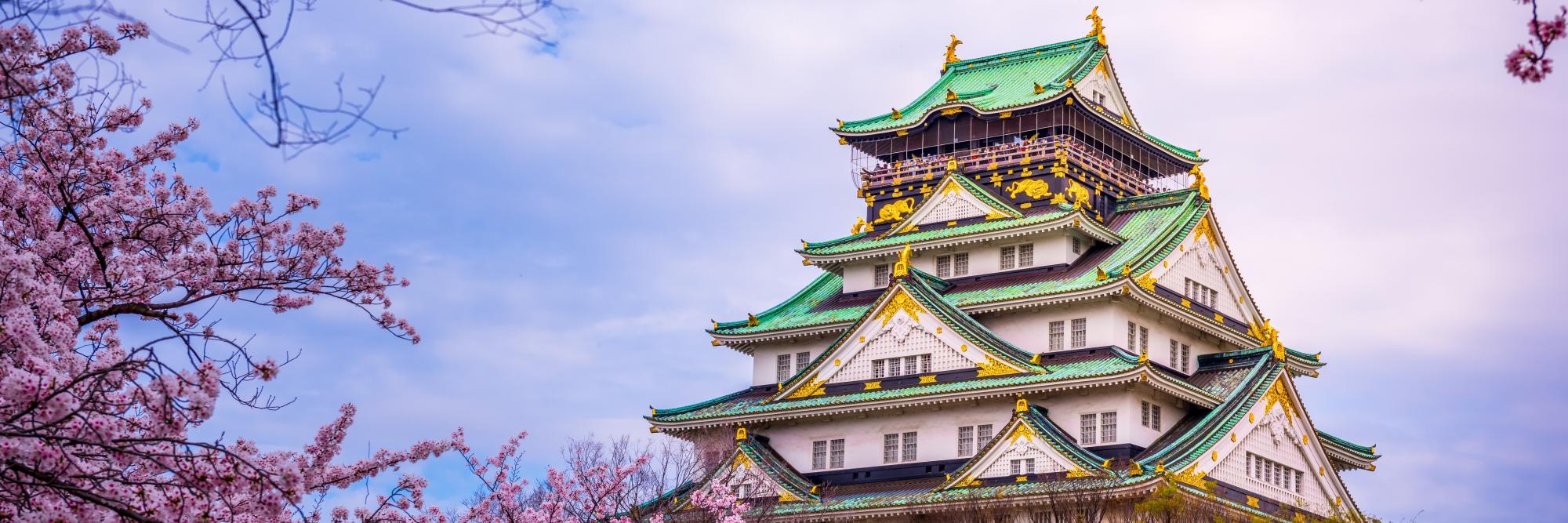
Read more in the Expat Arrivals Japan country guide or read more expat experiences in Japan.
About Franzi
Q: Where are you originally from?
A: Hamburg, Germany
Q: Where are you living now?
A: Currently, I live in Hamburg, but I will go back to Osaka in spring 2011, where I have already lived in 2007/08.
Q: How long have you lived here?
A: For one year.
Q: Why did you move; what do you do?
A: I studied Japanese language and culture at Munich University and took part in an exchange program at Osaka University. Next year, I will continue my studies as a research student. My research is about being overweight in Japan.
About Osaka
Q: What do you enjoy most about Osaka? How was the quality of life?
A: I enjoy the density of Osaka; the city is packed with houses, shops and restaurants of all kinds. Such a variety can be confusing sometimes, but I enjoy constantly discovering something new, for example, a quiet street with traditional houses and a tranquil shrine only a few steps behind the Dotombori street bustling with nightlife.
Q: Any negatives? What do you miss most about home?
A: I miss German bread sometimes, but I love Japanese food, so that (the bread) I can do without. What I really miss is tasty tap water…
Q: Is Osaka safe?
A: I feel very safe in Osaka, although sometimes exhibitionists can be spotted in parks at night, but for the most part, they are harmless.
About living in Osaka
Q: Which are the best places/suburbs to live in Osaka as an expat?
A: I can only speak for the north of Osaka, where I used to live. Ishibashi in Toyonaka or Senri in Suita are examples of good places to live in Osaka. These suburbs offer everything you need but are not as expensive as the city centre.
Q: How do you rate the standard of accommodation?
A: The standard of accommodation varies with the age of a building since most houses won't be renovated but just rebuilt instead. Until recently, there were virtually no houses with heating and insulation. As a result, many homes get quite cold in winter.
Q: What's the cost of living in Osaka compared to home? What is cheap or expensive in particular?
A: Even the smallest accommodation tends to be pricey in Japan, and Osaka is no exception. Air conditioning in summer and electric heating in winter add to these costs. If you're able to adjust your eating habits to the Japanese style, it is possible to eat very cheap; especially if you're single, it can be cheaper to eat out than to cook.
Q: What are the Osaka locals like; do you mix mainly with other expats?
A: Osakians have their own dialect and humour which I like very much. I found friends equally among locals and expats.
Q: Was it easy meeting people and making friends?
A: Since there are many groups for cultural exchange in Osaka, it is easy to get in touch with open-minded Japanese and other expats.
Q: How would you rate the healthcare?
A: The quality of healthcare is very high and affordable due to the National Health Insurance. In some cases, it might be better to get a second opinion about the diagnosis and the proposed treatment, especially if you need to treat a serious problem. Most doctors deal with patients in a paternalistic way and aren't used to being questioned. Expats will find, in some cases, because of this, they won't offer and discuss all possible treatments.
About working in Osaka
Q: Did you have a problem getting a work visa/permit?
A: As an exchange student, I had a student visa, and to get a working permit for up to 20 hours a week, I only needed to fill in a form at my university.
Q: What's the economic climate like in Osaka? Is there plenty of work?
A: The better you speak Japanese, the more work there is. There usually is a high demand for English teachers who don't need much Japanese, but for everything else, a higher level of Japanese is required.
And finally…
Q: Is there any other advice you would like to offer new expat arrivals?
A: Use your chance to try out all things Japanese and gain a new perspective on yourself. Even if some things might seem strange or awkward to you at first, do as the Japanese do and judge afterwards. Go to a public bath where everybody is naked, sing karaoke even if you think you can't sing at all, and taste that strange-looking food even the Japanese can't always explain what it is made of. You might find yourself surprised.
Last but not least, take a step back if something gets you frustrated. Most of the time, it is not as bad as it seems. According to my experience, everything that made me mad in Japan was due to my misunderstanding, and I could have spared myself much frustration if I had asked directly what certain actions or attitudes meant.
– Interviewed October 2010



